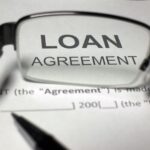Is Bad Credit Holding You Back?
Let’s face it—bad credit can feel like a giant roadblock when you’re in a financial pinch. Whether it’s unexpected medical bills, car repairs, or a big purchase you can’t postpone, securing a loan when your credit is less than stellar seems downright impossible. But here’s the good news: personal loans for bad credit exist, and they might just be your financial lifesaver.
In this guide, we’ll break down everything you need to know about these loans, from how they work to tips on getting approved. So, grab a cup of coffee, and let’s dive in!
What Are Personal Loans for Bad Credit?
Personal loans for bad credit are specifically designed for individuals with low credit scores. Unlike traditional loans that rely heavily on your credit score, these loans consider alternative factors, such as your income or employment history, to determine your eligibility.
Key Features:
- Flexible Approval Criteria: Lenders often evaluate your ability to repay rather than just your credit history.
- Higher Interest Rates: Since bad credit signals a higher risk, interest rates tend to be steeper.
- Shorter Terms: Most loans offer repayment terms ranging from 12 to 60 months.
Who Needs These Loans?
If your credit score is below 580, you likely fall into the “bad credit” category. This doesn’t mean you’re out of options—it just means you’ll need to work a little harder to find the right loan.
Types of Personal Loans for Bad Credit
Not all personal loans are created equal. Here are the main types you’ll encounter:
1. Secured Loans
These loans require collateral, such as your car or home. Because lenders have a safety net, secured loans often come with lower interest rates.
2. Unsecured Loans
Unsecured loans don’t require collateral but typically have higher interest rates. They’re a great option if you don’t own valuable assets.
3. Payday Loans
Short-term and high-interest, payday loans should be a last resort. While easy to get, they can trap you in a cycle of debt.
4. Peer-to-Peer (P2P) Loans
P2P lending platforms connect borrowers with individual lenders, offering more flexible terms. These are ideal if you’re looking to avoid traditional financial institutions.
How to Qualify for a Personal Loan with Bad Credit
Wondering how to boost your chances of approval? Here’s a handy checklist:
1. Check Your Credit Report
Before applying, pull your credit report to ensure there are no errors. Even a small mistake can hurt your score.
2. Consider a Co-Signer
Having a co-signer with good credit can significantly improve your chances of approval and get you a lower interest rate.
3. Provide Proof of Income
Lenders want assurance that you can repay the loan. Be ready to show pay stubs, tax returns, or bank statements.
4. Start Small
Requesting a smaller loan amount may increase your chances of approval since it reduces the lender’s risk.
Pros and Cons of Personal Loans for Bad Credit
Pros:
- Accessible: Even with a low credit score, you can still get approved.
- Builds Credit: Timely payments can improve your credit score over time.
- Quick Access: Many lenders offer same-day or next-day funding.
Cons:
- High Interest Rates: Expect to pay significantly more over the life of the loan.
- Limited Options: Not all lenders offer loans for bad credit.
- Risk of Debt Trap: Missing payments can worsen your financial situation.
Tips for Comparing Lenders
Shopping around for the best deal? Keep these factors in mind:
- Interest Rates: Compare APRs to find the most affordable loan.
- Loan Terms: Look for flexible repayment schedules that fit your budget.
- Fees: Watch out for origination, late payment, or prepayment fees.
- Reputation: Read reviews and check the lender’s Better Business Bureau rating.
Alternatives to Personal Loans for Bad Credit
Before you commit, consider these alternatives:
- Credit Union Loans: Credit unions often provide more favorable terms for members with bad credit.
- Home Equity Loans: If you own a home, you might qualify for a low-interest loan using your equity.
- Debt Consolidation Loans: These can help streamline multiple high-interest debts into one manageable payment.
FAQs: Personal Loans for Bad Credit
1. Can I get a personal loan with no credit check?
Yes, some lenders offer no-credit-check loans, but they typically come with very high interest rates. Proceed with caution.
2. How much can I borrow with bad credit?
Loan amounts vary by lender but generally range from $500 to $10,000 for bad credit borrowers.
3. How long does it take to get approved?
Many lenders offer quick approvals, with funds deposited within 24-48 hours.
4. Will a personal loan improve my credit score?
Yes, if you make on-time payments, your credit score can improve over time.
5. What’s the average interest rate for bad credit loans?
Interest rates typically range from 20% to 36%, depending on the lender and your financial profile.
Conclusion: Take Control of Your Finances
Bad credit doesn’t have to be a life sentence. Personal loans for bad credit are a valuable tool to cover urgent expenses and rebuild your financial health. However, it’s crucial to borrow responsibly and fully understand the terms of your loan.
Take the time to compare lenders, evaluate your options, and choose a loan that fits your budget. Remember, every financial decision you make today can pave the way for a better tomorrow.
Authoritative Links:
- Federal Trade Commission on Credit Scores: www.consumer.ftc.gov/articles/credit-scores
- Consumer Financial Protection Bureau on Personal Loans: www.consumerfinance.gov/personal-loans
- Better Business Bureau on Lender Reviews: www.bbb.org






